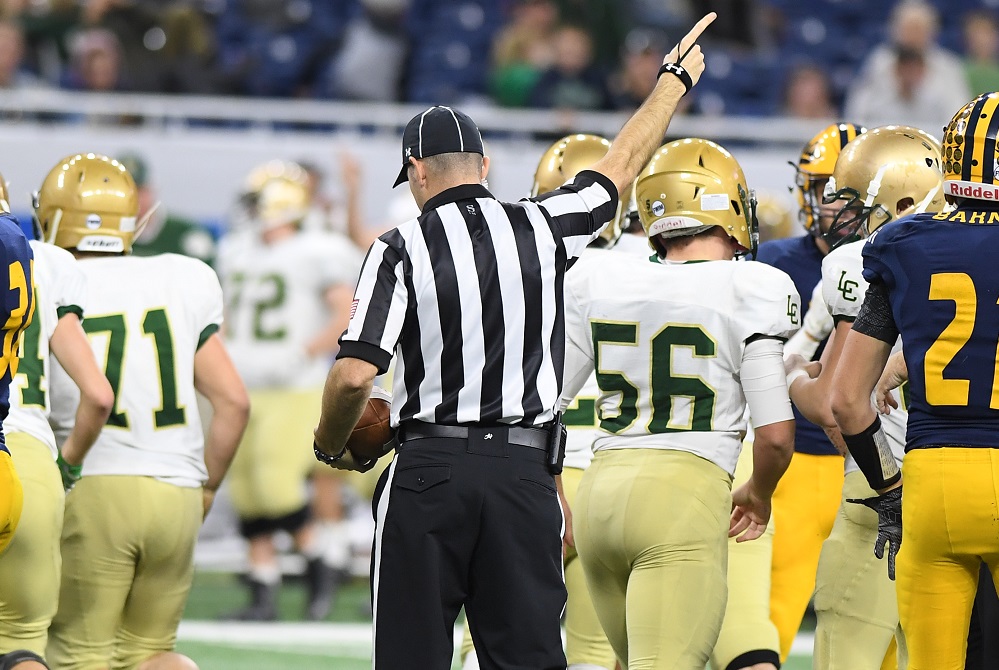
Big Ten TV
November 11, 2016
The Big Ten Conference likes to say it "appreciates" high school football within its footprint; but the evidence is otherwise.
First, in 2010 the Big Ten adopted a "bye week" to stretch its scheduling that pushed the final game of the Big Ten regular season – with its great rivalries, including Michigan v. Ohio State – to the day on which the high school Football Finals have been scheduled in Michigan for more than three decades. A periodic problem became an every-year plague.
Now the Big Ten has announced it will play and televise games on Friday nights; and in its first year of this new deal, Michigan State will play at Northwestern in a televised game on Friday night, Oct. 27 – the first night of the MHSAA Football Playoffs all across our state.
So, in 2017 we can thank the Big Ten for damaging the first as well as the last weekend of our high school Football Playoffs.
The Big Ten's reaction? "We are only playing six games on Friday nights. It could have been much worse."
I expect it will get worse. The greed of college sports knows no limits.

Be the Referee: Pass Interference
By
Geoff Kimmerly
MHSAA.com senior editor
September 2, 2021
This week, MHSAA officials coordinator Sam Davis explains the differences in high school pass interference rules from those at the college and pro levels.
Be The Referee is a series of short messages designed to help educate people on the rules of different sports, to help them better understand the art of officiating, and to recruit officials.
Below is this week's segment – Pass Interference – Listen
One of the big differences between high school football and the college or pro game is how pass interference is called.
In high school, there is no such thing as an “uncatchable” pass. If there is illegal contact by the defender while the ball is in the air, that’s pass interference, no matter where the pass ultimately ends up.
Also – in high school – a defender can “face guard” as long as no contact is made with the receiver. That is not pass interference, even if the defender does not look back for the ball.
Both of those interpretations differ from the college and pro game. Both (of those) levels have an uncatchable exception, and neither allows for face guarding.
Keep that in mind the next time you think you’ve spotted pass interference at the high school level.
Previous editions
Aug. 26: Protocols and Mechanics – Listen

